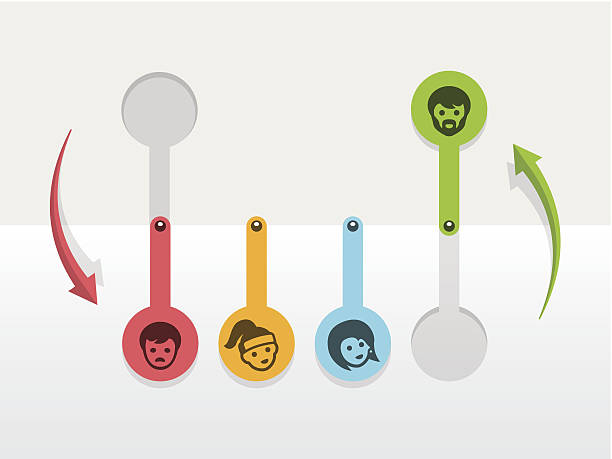
Little known facts about demotions
Receiving a demotion can feel like a kick in the guts. Being downgraded to a lower position with less responsibility and pay can make you feel like you have been cheated out of the job you worked so hard to get. Often, a demotion can come through no fault of your own. It could be that your employer is trying to cut costs. Or market forces have made your role redundant. Or even that your employer misjudged that you were ready for your role, and now thinks you would be better suited for a downgraded version of it. Little known facts about demotions is important reading
But what many people may ask is: in what circumstances is it fair for an employee to receive a demotion? Do you have to accept a demotion? And if you feel it is unfair, can you challenge your demotion through the Fair Work Commission?
In this article, we’ll endeavor to answer all these questions. We’ll also highlight the most common reasons for demotions and outline some of the lesser-known ways that a demotion can even be to an employee’s advantage.
Demotions may be more common than you think
If you have received a demotion, you are not alone. More than 1 in 10 workers (14 per cent) have received a demotion during their career, according to a recent survey by staffing company Office Team.
It found that 39 per cent of demotions are the result of poor performance. While 38 per cent involve employees who failed to live up to expectations following a promotion. Not surprisingly, the survey found that just 6 per cent of demotions are voluntary.

Is a demotion better than being dismissed?
When you have been demoted, it is often hard to think of it from a glass half full perspective. Sometimes, receiving a demotion is an unpleasant, but still favourable alternative to being dismissed altogether from your employment. This begs the question: if given the choice, would you rather receive a demotion or be dismissed from employment entirely?
Depending on the circumstances, some workers may in fact prefer to receive a demotion. After all, they may not be in a position to lose their income. Or they may see the benefit in staying on at their current employer and possibly working their way back up to their old role. The Office Team survey seems to suggest that more than half of workers would prefer to be dismissed than receive a demotion. It reveals that 52 per cent of employees quit their job after having it downgraded.
The survey also reveals that 47 per cent chose to continue in their role. However, these employees later became upset and disengaged. This seems to suggest that even if these workers preferred a demotion over dismissal, it still wasn’t an attractive choice to make.

Are there any advantages to demotions?
It is no surprise that the vast majority of employees don’t take a demotion well. Understandably, it can be a huge hit to your confidence and morale. In many cultures it is seen as a huge loss of face. It may even be embarrassing to continue working with the same people, but in a downgraded role with less responsibility and status. Given how a demotion can play on your emotions, it is no wonder so many employees end up quitting.
But sometimes, there is in fact a silver lining to receiving a demotion. One of these, as we have outlined, is that you can continue being employed and still receive an income, even if it is not an ideal situation. But there are sometimes other advantages too.
A demotion can give you a second chance
Instead of being dismissed, a demotion can provide the opportunity to prove your worth to your employer. And with time and dedication, you may be able to receive a promotion. This may not be a promotion back into your old role. It could be a promotion into a different or even better role.
In Australia, many talented workers are often dismissed instead of demoted. This often comes after they have received a promotion and failed to live up to expectations. In many countries around the world, however, such employees are simply demoted and their talent and skills are used elsewhere in the business.
These employees still have fruitful careers in their downgraded roles and are often promoted again within the organisation.
You can reassess your career
For some people, a demotion could be a chance to reassess their career trajectory. They may not have been entirely satisfied in their role, and the demotion could be the catalyst that sets them on a different career path. While it may be hard to believe at the time, your demotion could prove to be a blessing in disguise for your long-term career.

A demotion can provide the opportunity to develop
It is often the case that a company can grow faster than anticipated, and as such, some employees are placed into roles that they are not yet ready for. These employees might be talented and hardworking, but at the current stage in their career, are just not up to the task.
There is no shame in being demoted in a situation like this, and it can even be a boon for an employee’s career. By being downgraded in their role, it gives them the chance to undergo the training and skills development they need for long-term success.
Being placed in a senior role too soon in their career can often have detrimental effects on an employee. It can lead to the employee making mistakes, which lowers their confidence. And it can also see them dedicate too much time and emotion to their work, leading to burnout.
Can you refuse a demotion?
In most cases, of course, a demotion is certainly not to the advantage of an employee. A common situation in which employees find themselves is being offered a demotion instead of a redundancy.
It is important to understand that every employee has the right to refuse a demotion. This could mean opting to accept a redundancy package instead. Or it could mean engaging in a discussion with their employer to see if they are open to reversing their decision.
If you want to reject a demotion and continue in your current role, it is important to put your concerns in writing. You must explain to your employer why you have rejected the demotion.

Can I contest my demotion through the Fair Work Commission?
If you feel that your demotion is unfair, you might have recourse to make an unfair dismissal claim with the Fair Work Commission (FWC). This might seem unusual, seeing as though most people wouldn’t think that a demotion is a dismissal. However, in some cases, a demotion can be legally considered as a dismissal.
“If a demotion involves a significant reduction in duties or remuneration, it may constitute a ‘dismissal,’ even if the person demoted remains employed by the employer,” the FWC explains on its website. Many demotions and redundancies for that matter are really an unfair dismissal in disguise with the employer just avoiding sacking you. Instead they demote you, know you won’t take it and you will just leave. In other words you just sack yourself. Don’t fall for this trap
It is often hard to determine if you are eligible to make an unfair dismissal claim, as there are many factors involved. Our team at a Whole New Approach can help you understand if you have a sound case to make with the FWC. You can call us on 1800 333 666 for a free and confidential conversation.

Example of an unfair dismissal case involving a demotion
Let’s look at an example of how a demotion can lead to an unfair dismissal claim. A common situation that demoted employees can find themselves in is that their pay is reduced, but they are still required to perform the same role and responsibilities.
This is what happened in the Fair work unfair dismissal case of Johnson v Zehut Pty Limited. The employee had been working for clothing retailer Zehut for over 12 years, in a variety of roles. She was asked to manage a poorly performing store and agreed to do so provided her salary did not change.
A year after the employee took on management of the store, Zehut sought to change the terms of her contract to reduce her pay by over $30,000 per year. The employee did not accept the change and the company treated her refusal as a resignation. She subsequently made an unfair dismissal claim.
At her hearing, the Fair work found that the employee did not in fact resign but was dismissed at the initiative of Zehut. It also found that there was no valid reason for the dismissal, ruling it harsh, unjust and unreasonable.

Calculation of entitlements
A issue that is not considered, is your pay is reduced, then your accrued entitlements will be calculated at the lower new pay rate. The loss in many cases can be huge. As you are aware entitlements are paid at the rate when you take them, not when their accrued. (you see this with say long service leave for example).This can be negotiated whereby your entitlements are calculated at the time of the demotion then they set in stone in the books at the time. Make sure you get this in writing.
An another issue is superannuation. If your fund is a defined benefits fund. (many government and semi governments bodies have these funds, amongst others). Then you receive say 7-9 times your annual salary as your superannuation payout at the time of retirement. so if you take say a $20,000 pay cut. (this is common for example amongst high school principals who wind down to a smaller school, with a lower band of salary). So the net reduction and loss to your superannuation fund can be $140,000 (7x$20,0000). In many cases it can be more. All these issues have to be considerations by you.
Conclusion to: little known facts about demotions
If you feel that you have been treated unfairly with your demotion, A Whole New Approach can help. We can assess your situation and see what can be done for you. There are various options that are available to you. For all workplace investigations, sick leave issues, adverse action, Fair work Australia matters call us. We are leading workplace advisors and commentators, we work and represent employees in all states. We are proud of our staff and the outcomes they gain for our clients

Articles similar to Little known facts about demotions
Is demotion better than being sacked






